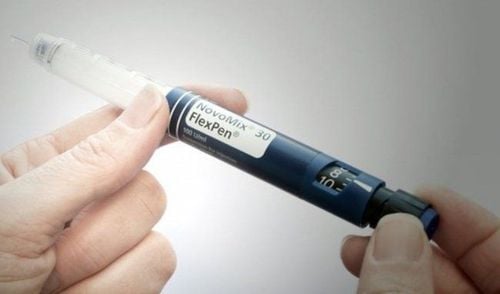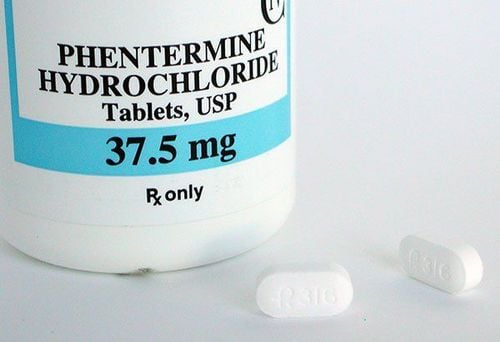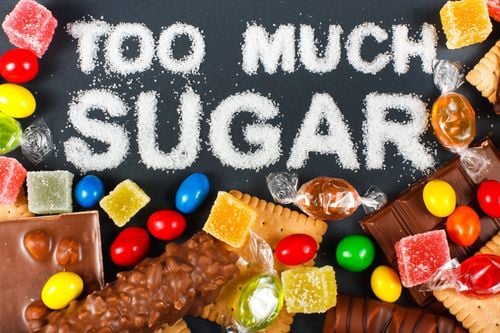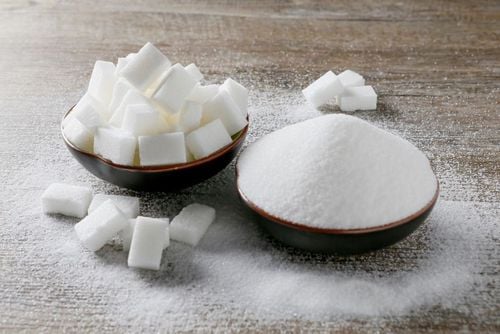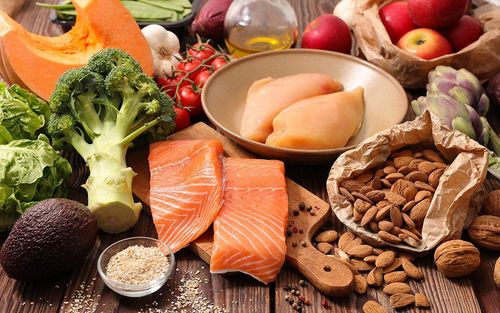This is an automatically translated article.
The article is professionally consulted by:Master, Doctor Nguyen Thi Ngoc - General Internal Medicine - Endocrinology - Department of Examination & Internal Medicine - Vinmec Central Park International General Hospital
Master, Doctor Nguyen Thi Nhat - Doctor of Infectious Diseases - Department of Medical Examination & Internal Medicine - Vinmec Hai Phong International General Hospital
Sugar is the main source of human energy, it is necessary to consume enough sugar every day to maintain the body's activities. However, if the intake of excess sugar is prolonged, we will be prone to dangerous diseases such as diabetes, obesity...
1. How much sugar should be eaten per day?
Sugar has the ability to provide energy for the body to function throughout the day, however, it is recommended to be consumed in moderation and in moderation.
There are 2 types of sugar: added sugar and natural sugar. Natural sugars found in foods like fruits, vegetables, rice, and whole grains are healthy foods that contain water, fiber, and other micronutrients. Added sugar is a major ingredient in candy and in many processed foods such as soft drinks and cakes. The most common added sugars are regular sugar (sucrose) and fructose corn syrup. To optimize health and lose weight, avoid foods that contain added sugar.
Researchers from the American Heart Association (AHA) say the maximum amount of added sugar a day for men is 150 calories (about 37.5 g or 9 teaspoons of sugar), for women is 100 calories (about 25g or 6 teaspoons of sugar).
Sugar is the main ingredient to create energy for the body to work, can be loaded through the daily diet menu, there are 3 types of sugar:
Simple sugar (refined sugar): rare in nature, mainly is fructose from fruit. Double sugar: is the type of sugar commonly used in food; lactose is sugar from milk; and maltose found in wheat and barley malt. Polymolecular sugar: found in rice, cereals, potatoes... Of the total energy from a meal, carbohydrates usually account for 55-65%, the rest is protein and fat. In which, the form of polymolecular sugar (from rice, bread, sticky rice, potatoes, corn...) should account for 70% of the total amount of sugar put into the body, the form of double and single sugar should only be less than 5% of the total sugar. energy.
The intake of sugar less than or more than the recommended amount of the body each day has many health effects.
When the diet lacks sugar, it will lead to hypoglycemia. The earliest signs of this condition are feelings of hunger, decreased concentration, cold hands and feet, sweating, shaking hands and feet.
At that time, should drink sugar water immediately to reduce hypoglycemia. After that, you need to maintain a regular diet, absolutely do not skip meals. When eating a lack of sugar for a long time, it causes a decrease in energy consumption, leading to weight loss and fatigue.
When eating a lot of sugar, especially the type of sugar absorbed quickly, beyond the body's metabolic capacity, it will lead to an increase in blood sugar (pre-diabetes and diabetes).
At the same time, when you eat more sugar than you need (eating a lot of rice, soft drinks, candies, sweet fruits...) the excess sugar will be stored as fat in the body. Therefore, a diet high in sugar for a long time will lead to overweight and obesity.
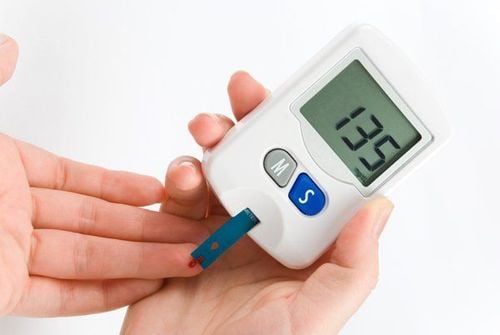
Nếu ăn quá nhiều chất đường sẽ dẫn đến tình trạng tăng đường trong máu
2. What foods should you get sugar from?
Currently, the status of overweight and obesity and nutrition-related non-communicable diseases such as hypertension, diabetes, cancer... are increasing and rejuvenating. Therefore, consumers need to pay attention to choosing healthy foods to eat every day.
Accordingly, daily food can conventionally calculate the amount of sugar as follows:
1 cup of rice contains about 45-50g of starch (containing complex sugars), providing 180-200 Kcal 1 sweet potato is about 160g contains 45g powdered sugar 1 teaspoon granulated sugar contains 4g sugar (8g spoon will contain) 1 tablespoon granulated sugar (8ml spoon is used to eat pho) contains 6g sugar (with spoon is 14g) Soft drinks (including canned juice, lemon soda, bottled lemon tea, carbonated soft drinks) all contain 10-14g of sugar per 100g of product. More energy drinks, up to 19g of sugar / 100g of product. Thus, with just a 330ml can of soft drink (containing about 34g of sugar), your body has consumed an excessively high amount of sugar compared to the allowed level in a day.
In particular, sweetened milks contain about 6-10g of sugar per 100g of product (the highest amount of sugar in chocolate-flavored milk). Yogurt also contains about 10g/100g of product. Therefore, although milk is a recommended food, if used regularly, your body will consume a fairly high amount of sugar.
Besides, consumers also need to get into the habit of reading product labels when choosing to use. Parents also practice for their children the habit of eating less salty and less sweet in their daily diet to protect long-term body health.
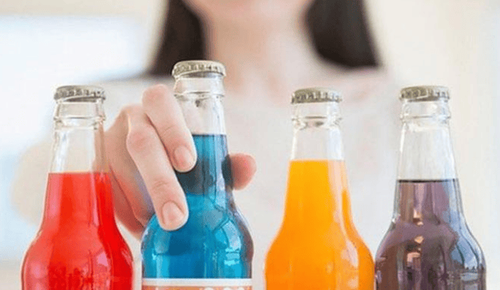
Các loại nước ngọt chứa rất nhiều đường
3. Note when using sugar everyday
For those who are on a diet and need to lose weight, they should maintain the minimum amount of carbohydrates loaded for the body to work on. If you skip the main meal or eat not enough, diet completely without carbohydrates, the body will be deficient in sugar.
If you eat all the food groups (including carbohydrates, fats, proteins, vegetables and fruits), you don't need to use refined sugars (sugar, confectionery, soft drinks...).
When you eat more sugar than you need (eating a lot of rice, soft drinks, candies, sweet fruits...) there will be excess sugar.
People with sugar metabolism disorders have almost no clinical manifestations, so it is difficult to detect. Only a blood sugar test or a glucose tolerance test can detect it.
Therefore, it is very important to have regular health check-ups and blood sugar tests to detect pre-diabetes and diabetes early. This is recommended to be done with high-risk groups.
Although sweet foods containing a lot of sugar are loved by many people, they also need to be eaten in moderation, to provide the right amount of sugar for the body.
Vinmec International General Hospital is one of the hospitals that not only ensures professional quality with a team of leading medical doctors, modern equipment and technology, but also stands out for its examination and consultation services. comprehensive and professional medical consultation and treatment; civilized, polite, safe and sterile medical examination and treatment space. Customers when choosing to perform tests here can be completely assured of the accuracy of test results.
Please dial HOTLINE for more information or register for an appointment HERE. Download MyVinmec app to make appointments faster and to manage your bookings easily.




